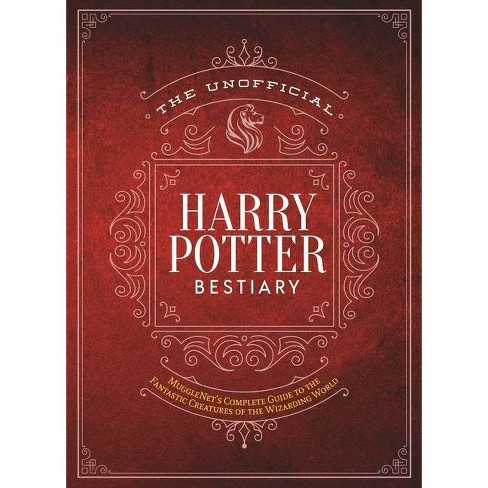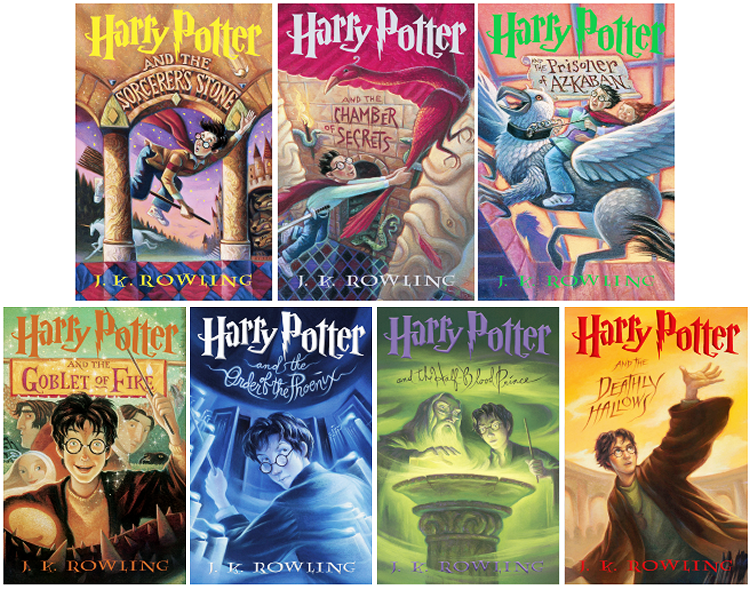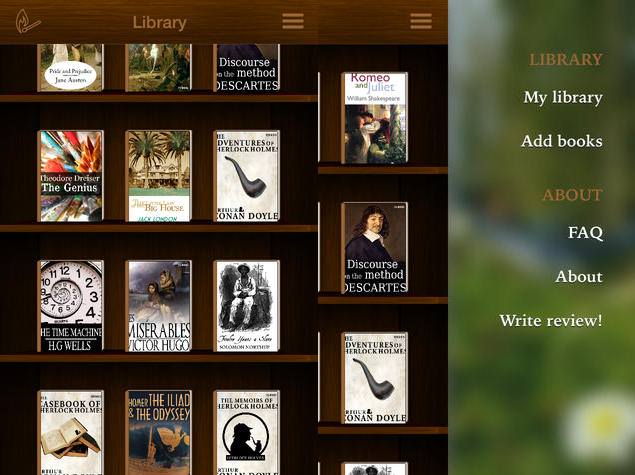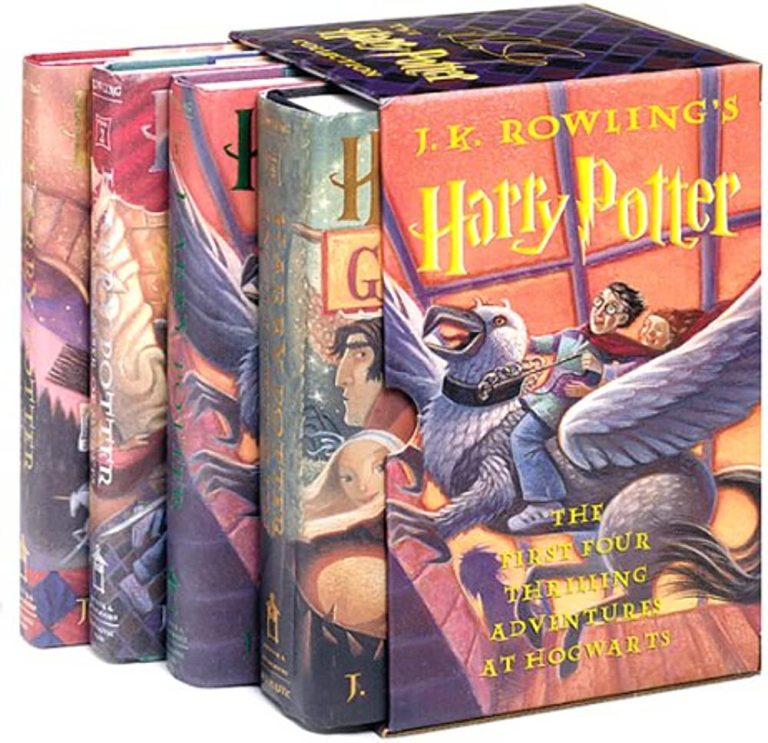Harry Potter Books: The Fascinating World Of Wizarding Newspapers And Media
Step into the enchanting world of Harry Potter books, where magic comes to life on every page. While the captivating characters and thrilling adventures may take center stage, there is another aspect of this extraordinary universe that often goes unnoticed: the fascinating world of wizarding newspapers and media. From the Daily Prophet to The Quibbler, these publications provide a unique glimpse into the events and happenings of the wizarding world. In this article, we’ll dive into the captivating realm of Harry Potter’s newspapers and media, uncovering the secrets, scandals, and stories that make them an integral part of the wizarding experience.
As you embark on this magical journey through the Harry Potter books, you’ll soon discover that the wizarding newspapers and media play a vital role in shaping the narrative. These publications serve as a source of information, spreading news, rumors, and even propaganda throughout the magical community. From the sensational headlines to the lively editorials, the newspapers in Harry Potter’s world are a reflection of the society they represent. Whether it’s the biased reporting of the Daily Prophet or the eccentric articles of The Quibbler, each publication adds depth and intrigue to the wizarding world.
So, grab your wand and prepare to delve into the captivating world of Harry Potter’s newspapers and media. From uncovering the truth behind the headlines to exploring the inner workings of the wizarding press, this article will take you on a journey that will leave you spellbound. Get ready to immerse yourself in the rich tapestry of magical journalism and discover the untold stories that lie within the pages of the Harry Potter books.
The Harry Potter books transport readers into a fascinating world of wizarding newspapers and media. From the Daily Prophet to The Quibbler, these publications provide a unique glimpse into the magical realm. The newspapers feature captivating headlines, interviews with famous witches and wizards, and reports on magical events. The media plays a crucial role in shaping public opinion and disseminating information in the wizarding world. Whether it’s uncovering dark secrets or reporting on Quidditch matches, the newspapers and media in Harry Potter books offer a rich and immersive experience for readers.

Harry Potter Books: The Fascinating World of Wizarding Newspapers and Media
Harry Potter is a beloved series of books that has captivated millions of readers around the world. One of the most intriguing aspects of the wizarding world created by J.K. Rowling is the presence of newspapers and media outlets that play a significant role in shaping the narrative. In this article, we will explore the fascinating world of wizarding newspapers and media in the Harry Potter books, delving into their importance, their portrayal in the series, and the impact they have on the characters and the overall story.
The Daily Prophet: The Leading Newspaper in the Wizarding World
The Daily Prophet is undoubtedly the most prominent and influential newspaper in the wizarding world. It serves as the primary source of news and information for witches and wizards, covering a wide range of topics from current events to sports and entertainment. The newspaper is known for its distinctive appearance, with a large black-and-white photograph on the front page that moves and captures the attention of its readers.
The Daily Prophet is not without its flaws, however. Throughout the series, we see instances of biased reporting and manipulation of information to serve certain agendas. The newspaper is often criticized for its sensationalism and tendency to twist the truth, particularly when it comes to stories involving Harry Potter and his friends. Despite these shortcomings, the Daily Prophet remains a central part of the wizarding world, shaping public opinion and influencing the actions of its readers.
The Role of the Quibbler: An Alternative Source of News
In contrast to the mainstream and often biased reporting of the Daily Prophet, the Quibbler offers a refreshing alternative for those seeking a different perspective. The Quibbler is a tabloid-style magazine known for its eccentric and outlandish articles, often featuring stories about mythical creatures, conspiracy theories, and unorthodox viewpoints. While the magazine is generally dismissed as unreliable and filled with nonsense by the majority of wizards and witches, it does hold some hidden truths and occasionally provides valuable information.
Luna Lovegood, a quirky and endearing character in the Harry Potter series, is a devoted reader of the Quibbler. She believes in the magazine’s unconventional ideas and defends its credibility, even when faced with skepticism from her peers. The Quibbler serves as a symbol of free thinking and open-mindedness, challenging the status quo and encouraging readers to question the mainstream narratives presented by the Daily Prophet.
The Power of Media in Shaping Public Opinion
The portrayal of newspapers and media in the Harry Potter books highlights the significant role they play in shaping public opinion and influencing the actions of individuals. We see how the Daily Prophet’s biased reporting creates a negative perception of Harry Potter and his allies, leading to widespread skepticism and doubt about their claims. On the other hand, the Quibbler’s alternative viewpoints provide a platform for marginalized voices and challenge the dominant narrative.
The power of media is not limited to newspapers alone. Throughout the series, we also encounter other forms of media, such as radio programs and books, that contribute to the dissemination of information and influence public opinion. For example, “The Tales of Beedle the Bard” plays a crucial role in the final book, providing important clues and guidance to Harry and his friends.
Media in the wizarding world serves as a reflection of the real-world media landscape, highlighting the importance of critical thinking and the need to question the information presented to us. It reminds us that not everything we read or hear is necessarily true, and encourages us to seek alternative perspectives and sources of information.
The Freedom of the Press: A Constant Battle
The portrayal of newspapers and media in the Harry Potter books also explores the theme of freedom of the press and the constant battle to maintain journalistic integrity. We witness how the Daily Prophet becomes a tool for the Ministry of Magic to control public opinion and suppress dissenting voices. The newspaper’s biased reporting and manipulation of information serve as a reminder of the dangers of censorship and propaganda.
At the same time, the Quibbler represents the resilience of independent media and the importance of alternative voices. Despite facing ridicule and dismissive attitudes from the majority, the magazine continues to publish articles that challenge the established order, offering a platform for different perspectives and encouraging critical thinking.
In conclusion, the world of wizarding newspapers and media in the Harry Potter books is a fascinating and integral part of the story. From the biased reporting of the Daily Prophet to the alternative viewpoints of the Quibbler, these media outlets shape public opinion, influence the actions of characters, and explore themes of freedom of the press and the power of information. As readers, we are reminded of the importance of critical thinking and the need to question the narratives presented to us, both in the wizarding world and in our own society.
Key Takeaways: Harry Potter Books – The Fascinating World of Wizarding Newspapers and Media
- Wizarding newspapers like the Daily Prophet play a significant role in the Harry Potter books.
- The Daily Prophet covers important news about the wizarding world, including events, politics, and sports.
- The Quibbler is a tabloid-like publication that focuses on more eccentric and controversial topics.
- The wizarding media often spreads propaganda and misinformation, affecting public perception.
- Newspapers and media outlets in the Harry Potter books provide insight into the power dynamics and manipulation within the wizarding society.
Frequently Asked Questions
What are the wizarding newspapers mentioned in the Harry Potter books?
The Harry Potter books introduce several wizarding newspapers that play a significant role in the series. The most prominent ones are the Daily Prophet and The Quibbler. The Daily Prophet is the primary source of news for the wizarding world and is known for its biased reporting and manipulation of information. On the other hand, The Quibbler is a lesser-known publication that focuses on conspiracy theories and unusual stories.
Other wizarding newspapers briefly mentioned in the books include The Witch’s Voice, The Spellbound Gazette, and The Black Marketeer. Each newspaper offers a unique perspective on the wizarding world, adding depth and richness to the fictional universe created by J.K. Rowling.
How does the Daily Prophet influence public opinion in the wizarding world?
The Daily Prophet holds immense influence over public opinion in the wizarding world. Through its biased reporting and manipulation of information, it shapes the narrative and often portrays Harry Potter and his allies in a negative light. The newspaper is known to be controlled by the Ministry of Magic, which uses it as a tool to maintain its authority and control over the wizarding community.
By publishing sensationalized stories and spreading misinformation, the Daily Prophet creates fear and distrust among the wizarding population. It also serves as a means of propaganda, supporting the Ministry’s agenda and suppressing any dissenting voices. Despite its questionable integrity, the newspaper remains widely read and trusted by many wizards and witches, making it a powerful tool for shaping public opinion.
What role does The Quibbler play in the Harry Potter series?
The Quibbler, edited by Xenophilius Lovegood, serves as a counter-narrative to the Daily Prophet in the Harry Potter series. While the Daily Prophet spreads propaganda and misinformation, The Quibbler focuses on alternative and unconventional stories. It embraces eccentricity and promotes open-mindedness in a society that often dismisses anything outside the norm.
Although The Quibbler is often mocked and ridiculed by the mainstream wizarding community, it proves to be a valuable source of information for Harry Potter and his friends. The publication’s willingness to explore different perspectives and its belief in conspiracy theories ultimately play a crucial role in uncovering the truth and aiding the fight against Voldemort and his followers.
Are there any other forms of media mentioned in the Harry Potter books?
Yes, apart from newspapers, the Harry Potter books mention various other forms of media within the wizarding world. The books introduce radio broadcasts, such as the popular program “Potterwatch,” which serves as a source of resistance against Voldemort’s regime. Additionally, there are wizarding magazines like Witch Weekly and The Quidditch World Cup program, which provide entertainment and information.
Furthermore, the books mention the existence of wizarding photographs, moving portraits, and the magical newspaper, The Daily Prophet, which updates itself with the latest news. These different forms of media contribute to the immersive and detailed portrayal of the wizarding world in the Harry Potter series.
How does the portrayal of media in the Harry Potter books reflect real-world journalism?
The portrayal of media in the Harry Potter books mirrors real-world journalism in several ways. It highlights the power of the press to shape public opinion, the existence of biased reporting, and the manipulation of information for personal or political gain. The Daily Prophet’s role as a mouthpiece for the Ministry of Magic reflects how certain media outlets can be influenced and controlled by those in power.
The inclusion of The Quibbler, with its alternative and unconventional stories, also emphasizes the importance of independent and diverse media in challenging dominant narratives. By exploring these themes, the Harry Potter books encourage readers to question the information they receive and to seek multiple perspectives, mirroring the importance of critical thinking in consuming real-world news.

The Harry Potter Wizarding Almanac book trailer
Final Summary: Unveiling the Enchanting World of Wizarding Newspapers and Media in the Harry Potter Books
As we conclude our journey into the captivating realm of the Harry Potter books, we cannot overlook the significant role played by wizarding newspapers and media. These magical publications bring a unique flavor to the wizarding world, providing us with glimpses into the lives of our favorite characters and shedding light on the events that shape their adventures. From the sensationalism of the Daily Prophet to the rebellious spirit of The Quibbler, these newspapers offer a window into the intricate tapestry of the wizarding society.
Through the wizarding newspapers, J.K. Rowling masterfully integrates realism and fantasy, creating a rich and immersive reading experience. These publications serve as a means to convey crucial information, introduce new plot developments, and provide insights into the characters’ motivations. The vivid descriptions of articles, editorials, and advertisements make us feel like active participants in the magical world, eagerly devouring the news just like the characters themselves.
Moreover, the diverse array of wizarding media outlets showcases the power of communication and the influence it holds. From Rita Skeeter’s scandalous exposés to the underground resistance movement reported by The Quibbler, these newspapers demonstrate the importance of media in shaping public opinion and challenging authority. By incorporating these elements, Rowling prompts us to reflect on the power dynamics within our own society and the role media plays in shaping our perceptions.
In conclusion, the Harry Potter books not only transport us to a world of magic and adventure but also provide a thought-provoking exploration of the role of newspapers and media in society. Through the enchanting realm of wizarding newspapers, we gain a deeper understanding of the characters, their struggles, and the complex dynamics of the wizarding world. So, grab a copy of the Daily Prophet or The Quibbler, and immerse yourself in the captivating world of wizarding journalism.






